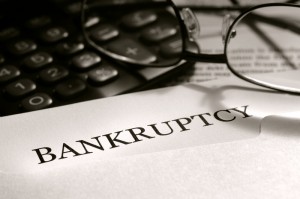 In Chapter 13 bankruptcy cases debtors file a plan to reorganize their debts. These plans are typically three to five years long and propose that the debtor will make a payment to a trustee each month during the plan. The trustee takes that money and disburses the funds to the creditors listed in the plan.
In Chapter 13 bankruptcy cases debtors file a plan to reorganize their debts. These plans are typically three to five years long and propose that the debtor will make a payment to a trustee each month during the plan. The trustee takes that money and disburses the funds to the creditors listed in the plan.
In Chapter 13 cases, unsecured creditors can be paid nothing, part of their claim, or paid in full. The amount they are paid depends on whether or not the debtor has disposable income. Disposable income is the amount the debtor has each month, after paying their household expenses and the secured and priority creditors listed in their plan.
Sometimes my clients will ask me whether they can pay extra each month in order to pay off their bankruptcy early. This is a great attitude and I appreciate my client’s initiative. However, this may or may not be a good idea, depending on their particular plan. The debtor is required to be in the plan for the full duration of the bankruptcy and they are required to make a payment each month to the trustee. If a debtor pays extra then the trustee will take that money and increase the debtor’s plan base. This means that if the debtor wasn’t paying any unsecured creditors in the case or if they were paying only a part of the unsecured creditor’s claims, then the amount available to the unsecured creditors is increased. By paying extra to the trustee in order to pay off the bankruptcy early the debtor has actually increased the amount that they have to pay in the bankruptcy case.
The exception to this rule applies to debtors who are paying all of their debt off in the bankruptcy case. If the debtor is paying all creditors in full then they don’t have to stay in the bankruptcy for the full duration. If they pay extra it means they will get out of bankruptcy early. If you are in a Chapter 13 bankruptcy case be sure to speak with your bankruptcy lawyer before prepaying your bankruptcy plan payments.